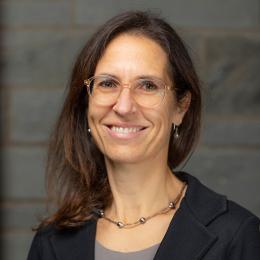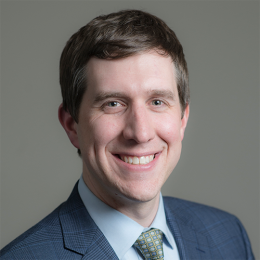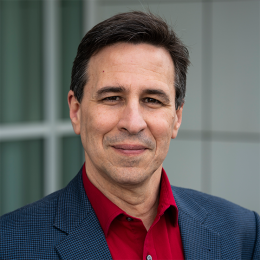
Leadership

Claudia Fischbach-Teschl
James M. & Marsha McCormick Director of Biomedical Engineering; Stanley Bryer 1946 Professor of Biomedical Engineering
Claudia Fischbach-Teschl is the Stanley Bryer 1946 Professor of Biomedical Engineering and James M. & Marsha McCormick Director of Biomedical Engineering. Professor Fischbach-Teschl received her Ph.D. in pharmaceutical technology from the University of Regensburg, Germany, and conducted her postdoctoral work at Harvard University in the Division of Engineering and Applied Sciences. Throughout her career, she has received numerous honors. She is a fellow of the American Institute for Medical and Biological Engineering, the Biomedical Engineering Society, and the Alexander von Humboldt Foundation in Germany.

Jan Lammerding
Associate Director
Jan Lammerding is a professor in the Meinig School of Biomedical Engineering and the Weill Institute for Cell and Molecular Biology at Cornell University. He received a Bachelor of Engineering degree from the Thayer School of Engineering at Dartmouth College, earned a Diplom Ingenieur degree in Mechanical Engineering from the University of Technology in Aachen, Germany, a completed his Ph.D. in Biological Engineering at the Massachusetts Institute of Technology. Following a brief postdoctoral fellowship, he started his faculty career at Harvard Medical School/Brigham and Women’s Hospital before being recruited to Cornell University in 2011. At Cornell University, Dr. Lammerding continues to conduct pioneering research on ‘nuclear mechanobiology’, investigating how the mechanical properties of the cell nucleus modulate cellular functions, and how physical forces acting on the nucleus affect its structure and processes, with important applications in muscular dystrophy, heart disease, and cancer. Dr. Lammerding has published over 100 peer-reviewed articles, including in Nature, Science, and PNAS. His research is supported by grants from the National Institutes of Health, the National Science Foundation, the Leducq Foundation, and the Volkswagen Foundation. Dr. Lammerding’s work has received several prestigious awards, including a National Science Foundation CAREER Award and the Keith Porter award of the American Society for Cell Biology (ASCB). Dr. Lammerding is a Fellow of the Biomedical Engineering Society (BMES), the American Institute for Medical and Biological Engineering (AIMBE), and the ASCB. At Cornell University, Dr. Lammerding previously served as Director of Graduate Studies at the Meinig School, and he has been recognized with several awards for research, teaching, and mentoring, including from the College of Engineering and the Professional Student Assembly.

Shivaun Archer
John & Janet Swanson Senior Lecturer, Director of Undergraduate Studies
Dr. Shivaun Archer is in charge of the biomedical engineering undergraduate instructional laboratories. She designs and teaches undergraduate instructional labs for five biomedical engineering courses: BME 1310, BME 3010, BME 3020, BME 4010, and BME 4020. In recognition of her efforts in undergraduate education, Dr. Archer has received numerous prestigious teaching awards.
Prior to Cornell, Dr. Archer worked for five years at Lynntech, Inc. a small research company specializing in biotechnology, biomaterials, chemical and biological sensors, medical biotechnology, and environmental remediation. Her work on wastewater treatment for long term space missions resulted in her receiving two NASA Inventions Space Act Awards. She also holds a joint appointment as a Research Associate in the School of Chemical and Biomolecular Engineering. Her research interests include nanobiotechnology and tissue engineering.

Ben Cosgrove
Associate Professor, Director of Graduate Studies
Ben Cosgrove directs the Laboratory of Regenerative Systems Biology at the Meinig School. His research group develops and implements systems bioengineering approaches to study the transcriptional and signaling network dysregulations underlying the decline of muscle stem cell function and tissue regeneration in aging and disease.
Dr. Cosgrove earned a bachelor’s in biomedical engineering at the University of Minnesota, a Ph.D. in bioengineering at the Massachusetts Institute of Technology under the supervision of Dr. Douglas Lauffenburger and Dr. Linda Griffith, and completed a postdoctoral fellowship at the Stanford University School of Medicine with Dr. Helen Blau. His research has been supported by a Whitaker Foundation Graduate Research Fellowship, a Stanford Molecular Imaging Scholars Fellowship, multiple NIH Awards (K99/R00, R01, and two R21 Grants), and a Glenn Medical Research Foundation/American Federation for Aging Research Grant for Junior Faculty. His research has been recognized by a Biomedical Engineering Society (BMES) Graduate Research Award (2008), a Rising Star Award from the Cellular and Molecular Bioengineering Special Interest Group of BMES (2015), and a Young Innovator of Cellular and Molecular Bioengineering Award (2017). His instruction has received a Swanson Teaching Excellence Award (2019) from the Cornell University College of Engineering.

Newton de Faria
Professor of Practice, Director of Master's of Engineering Program
Newton de Faria earned his Ph.D. in Biomedical Engineering from the University of Texas at Austin in 1998. He brings nearly two decades of experience working in industry and has held numerous teaching appointments. For the last decade, he has focused on medical devices, analytical devices and pharmaceutical application markets in the biomedical and health industries. He has worked as the Senior District Sales Manager and Strategic Accounts Manager for National Instruments Corporation. He has taught BME 6500, Biomedical Instrumentation, at the University of Connecticut. Dr. de Faria brings a passion for accelerating productivity, innovation, and discovery in the biomedical industry. He will prepare Master of Engineering students for a wide range of careers by incorporating BME industry-oriented training using a design-centric approach. Our graduates will be prepared to address engineering challenges in the regulatory environment associated with modern healthcare. We will benefit greatly from his breadth of experience and commitment to education. We are delighted to have Dr. de Faria serve in this vitally important role and anticipate great success under his leadership.

